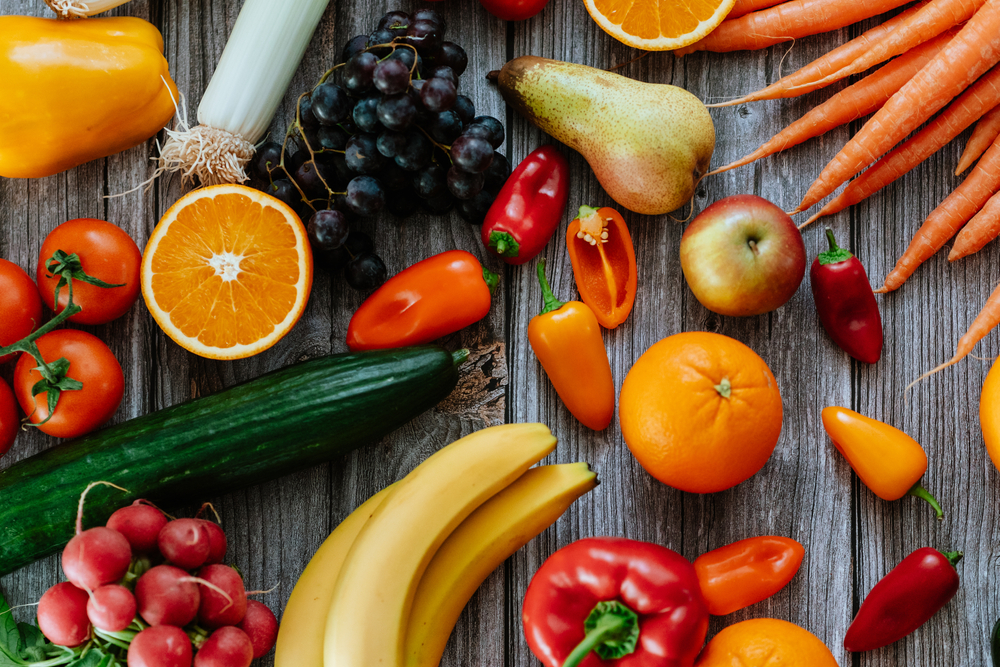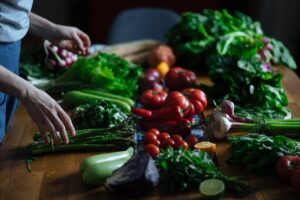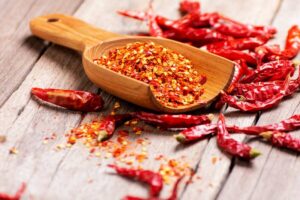How’s YOUR Diet Looking?
A diet that’s very rich in fruits and veggies has been scientifically proven to deliver a considerable amount of health benefits, including reducing your risk of several chronic diseases and keeping your body in optimal health.
Yet, making any significant changes to your diet can sometimes seem very difficult. So instead of making any big moves, it may be better to start out with a few smaller ones. And it’s most likely more effortless to start with just one thing rather than all of them at once.
We’ve decided to discuss 6 small changes that can make your regular diet a little bit healthier. Just bear in mind that you don’t need to try to do them all at once. Instead, you may want to add some of these changes into your life one at a time.
Drink Black Coffee
Coffee, one of the most popular morning “pick-me-ups” in the world, is actually very healthy.
In fact, it’s a significant source of antioxidants and has been linked to many health benefits, including lowering one’s risk of type 2 diabetes, mental decline, and liver disease.
Yet unfortunately, many commercial coffee varieties contain many additional ingredients, like syrup, sugar, heavy cream, and cancer-causing sweeteners.
Downing these varieties pretty much defeats the purpose of all of coffee’s health benefits and instead adds lots of extra calories and sugar. So instead, try drinking your coffee black or just add a small amount of milk or cream, and cut out the sugar.
Opt For Whole Grain Rather Than Refined Bread
You can easily make your diet healthier by choosing whole grain bread instead of the usual refined grain bread most of us tend to buy. Refined grains have been linked to lots of health issues in the past.
On the other hand, whole grains have been connected to various health benefits, including a reduced risk of heart disease, type 2 diabetes, and cancer. They’re also a fantastic source of B vitamins, fiber, and minerals such as zinc, iron, magnesium, and manganese.
There are wide varieties of whole grain bread available, and many even taste better than refined bread.
Just be sure to read the label to make sure that your bread is only made with whole grains, not a mixture of whole and refined grains. It’s also beneficial to choose bread that contains whole seeds or grains.
Nuts And Seeds
Even though they’re high in fat and calories, nuts and seeds can aid your weight loss journey. These foods are crunchy, filling, and chock-full of essential nutrients that many people don’t get enough of, including vitamin E and magnesium.
They also require almost no prep time, so they’re easy to add to your routine. Almonds are a great example of a healthy nut choice. They’re a popular nut packed with vitamin E, antioxidants, magnesium, and fiber.
Studies show that almonds can contribute to weight loss and improve metabolic health. But unfortunately, some people can develop nut allergies as they grow older. If you have some type of reaction after eating any kind of nuts, eliminate it from your diet immediately.

Count Nutrients… Not Calories
If you want to enhance the quality of your diet, focus on the nutrients in your food instead of calories. Experts say that our energy intake can only depend on our ability to extract that energy from food. All calories are not created equal.
The quality of the calorie intake has the most impact on health, not necessarily the quantity. Need some examples? No problem, we’ve got you covered! Now that we’ve given you a couple of ideas to work with, let’s look into some specific foods you should be eating.
First up? Unsurprisingly…FRUITS! Fruits and berries are among the world’s most popular health foods. These sweet, nutritive foods are effortless to incorporate into your diet because they require no prep time.
Continue reading to see which fruits are the best to incorporate into your life!
Fruits
- Strawberries: Strawberries are very healthy and low in carbs and calories. They’re packed with fiber, vitamin C, and manganese and are arguably among the most mouthwatering foods.
- Apples: Apples are high in vitamin C, fiber, and multiple antioxidants. They’re very filling and make the perfect snack if you’re hungry in between meals.
- Oranges: Oranges are already very well known for their vitamin C content. But they’re also high in fiber and antioxidants.
- Bananas: Bananas are one of the world’s best sources of potassium. They’re also a great source of vitamin B6 and fiber and are convenient to stash away on the go.
- Avocados: Avocados are different from most of the other fruits because they’re loaded with healthy fats instead of carbs. They’re not only creamy and tasty but also high in potassium, fiber, and vitamin C.
- Blueberries: Blueberries are not only scrumptious but also among the most potent sources of antioxidants in the world.
Now that we’ve covered fruits, how ’bout those veggies?
Vegetables
Vegetables are among the world’s most full-bodied sources of nutrients. There’s a wide variety you can choose from, and it’s ideal to eat many different types daily.
- Tomatoes: Tomatoes are generally categorized as a vegetable, though they’re technically a fruit. They’re not only delicious but also loaded with nutrients like potassium and vitamin C.
- Bell peppers: Bell peppers come in a few different colors, typically red, yellow, and green. They’re crunchy and sweet and are a fantastic source of vitamin C and antioxidants.
- Broccoli: Broccoli tastes good raw OR cooked. It’s an incredible source of fiber and vitamins C and K and has a decent amount of protein compared with other types of vegetables.
- Asparagus: Asparagus is low in both calories and carbs, but it’s also loaded with vitamin K.
- Carrots: Carrots are a popular root vegetable. They’re incredibly crunchy and loaded with nutrients such as fiber and vitamin K. Carrots are also very high in carotene antioxidants, which we already know have numerous benefits.
- Kale: Kale has become popular in recent times because it’s incredibly high in vitamins C and K, fiber, and many other nutrients. It also adds a satisfying crunch to salads and many other dishes.
- Cucumber: Cucumbers are one of the world’s most well-known and popular vegetables. They’re deficient in carbs and calories, consisting primarily of water. But, they do contain several nutrients in small amounts, vitamin K included.
- Garlic: Garlic is exceptionally healthy. It contains bioactive organosulfur compounds with potent biological effects, among which are improved immune function.
- Onions: Onions are famous in many recipes due to their intense flavor. They contain a few bioactive compounds believed to have health benefits.
- Cauliflower: Cauliflower is a very universal cruciferous vegetable. It can be used to make many healthy dishes and taste good on its own.

To Sum Up
Doing a complete overhaul of your diet all at once can be a recipe for catastrophe. Rather, try incorporating some of the small changes listed in our article to make your diet healthier.
Our tips can help you keep your portion sizes reasonable, while others will help you add nutrients or adapt to something new. Together, they’ll significantly impact your overall diet and make it healthier and more sustainable without a massive change in your daily habits.
Start making these simple dietary changes today and make the next year your healthiest!
Let us know if you’ve implemented some of these tips into your diet and how they worked out for you. In the meantime, we think you’ll find this useful too: 6 Detox Foods That Work Even Better Than Apple Cider Vinegar







